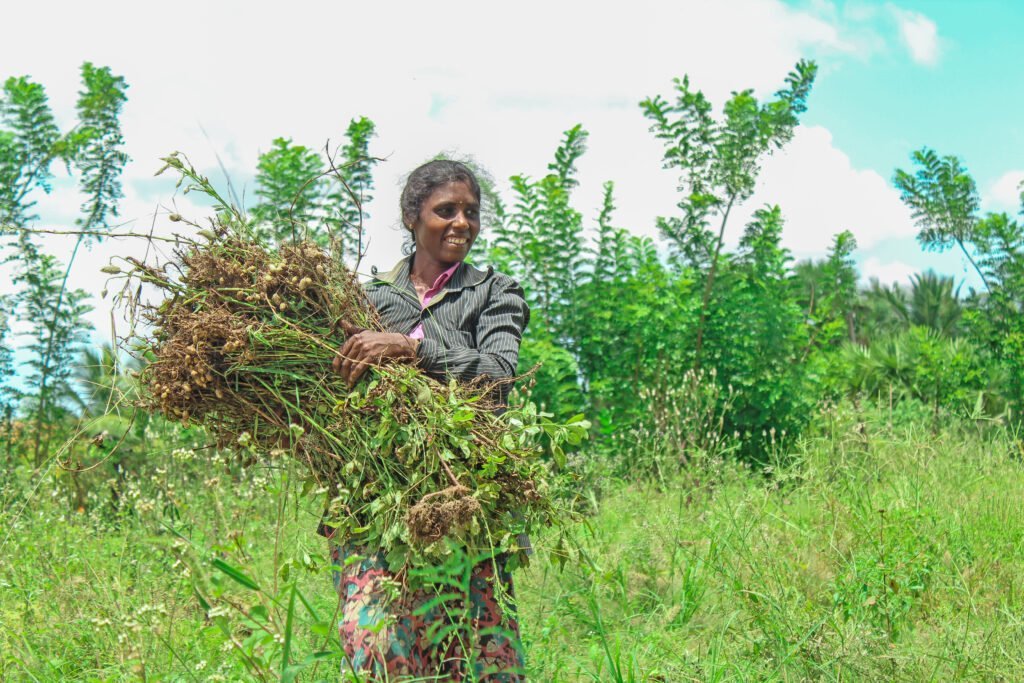Nanda returned to work in the scorching sun after her mid-day meal. Harvesting groundnuts was hard work but her bright smile dazzled against her dusky skin. It was obvious that Nanda was accustomed to hard work, but it was also visible that she was grateful for the work. After all, there was no one else to take care of Nanda and her two sons. Since her husband’s death in 2019, Nanda has taken it upon herself to provide for her sons to the best of her ability. She works as a daily-paid labourer in neighbouring fields and her earnings go directly towards feeding her family. As her family’s sole breadwinner, it is also her responsibility to provide for the educational needs of her children and therefore the purchase of exercise books and stationery for her sons can sometimes be difficult.
Nanda’s family is one among a considerable number of women-headed households in the Madukarai village in Mannar – a war-affected region located in the north of Sri Lanka. Poverty, limited access to financial support, socio-cultural barriers and the dry climatic conditions severely affect these single parents and breadwinners. They often rely on state welfare measures, the goodwill of relatives or work they secure as manual labourers to feed their families and provide for their dependents. When LEADS launched its pilot project in cultivating a 2-acre land in Mannar in 2019, it ensured that neighbouring women-headed households would be among those who benefit from this new social enterprise. With guidance from the Department of Agriculture, LEADS cultivated a quick-yielding variant of groundnuts in a land in Madukarai as part of its model eco-friendly farm. This land was cultivated for seed groundnuts which are purchased by the Department of Agriculture and in turn resold to local groundnut farmers at an affordable price. The cultivation aims at contributing towards seed security among farmers cultivating amidst harsh climatic conditions. As a model farm, knowledge and resource-sharing between rural farmers are also encouraged and LEADS cultivates fodder grass to be distributed free of charge among dairy farmers in the neighbourhood.
This model farm also creates employment for female breadwinners like Nanda who are hired for the preparation of the land for cultivation as well as for the harvesting season. At harvesting season, Nanda can earn up to LKR 21,000 when there is 3 weeks of work at hand. “I am very happy to work here” says Nanda. “With the money I earn, I can buy rice, rations and exercise books for my children.” Nanda’s sole purpose now in life is to educate her two young sons. “I want them to study well and hope that they will become teachers someday” shares Nanda, pausing to pick up the groundnuts she had just gathered.
